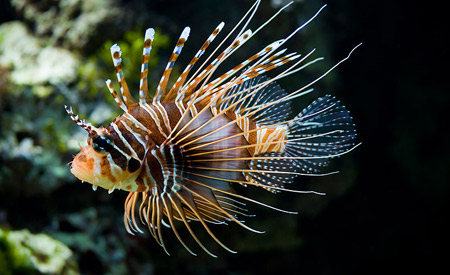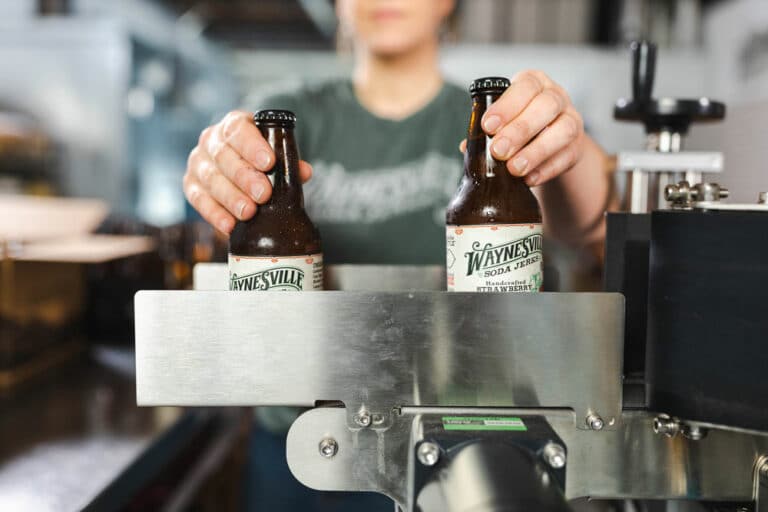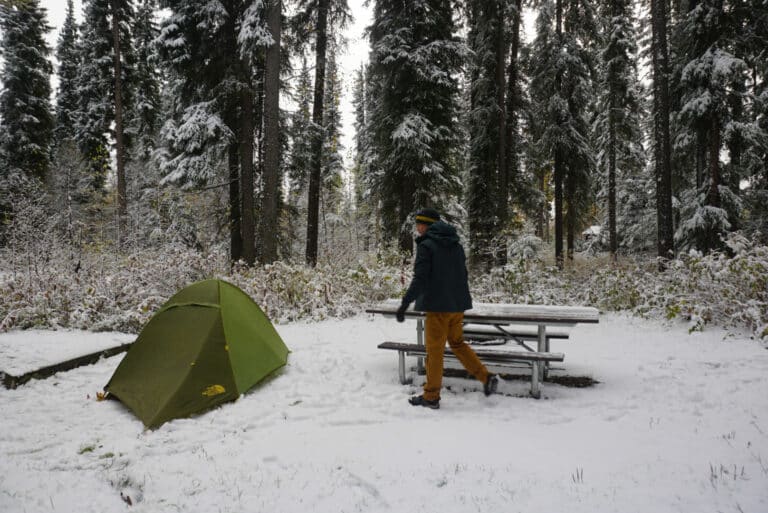Your daily outdoor news bulletin for July 10, the day the Scopes “Monkey Trail” began in Dayton, Tennessee in 1925, because people used to still think they are too good to have evolved from apes:
Invasion of the Lionfish
North Carolina has a problem. No, North Carolina has a BIG problem, and so does the rest of the East Coast of the United States. That problem comes in the form of a fairly beautiful fish, which is also part of said problem. The lionfish is an invasive species native to the tropic waters of the Indo-Pacific, but took hold off the North Carolina coast around 2000. They have no natural predators, reproduce like aquatic rabbits on Viagra, and crush the competition, reducing native fish populations by as much as 70 percent. And, now, according to a piece on Slate.com, they are becoming obese, meaning they are eating beyond when they are full – which is a characteristic not usually found in the animal kingdom, only in the human kingdom. This is very bad news. The article focuses on the eating habits of the lionfish, but the science and data behind the invasion are stunning to say the least.
Tennessee Wild Receives Patagonia Grant
Clothing manufacturer and philanthropic entity Patagonia recently awarded a $25,000 grant to Wild South and the Tennessee Wild Campaign to “protect headwaters, recreation, beauty, and intrinsic values of wild places in the Cherokee National Forest” of Tennessee. The grant will go toward lobbying to pass the Tennessee Wilderness Act that would expand protection for nearly 20,000 acres of the Cherokee National Forest, giving that acreage the more robust security of a Wilderness designation as oppose to National Forest.
Read more on the Wild South website.
Chesapeake Bay Foundation Doing Work
In a mash-up of the the Dirt’s first two stories is the Chesapeake Bay Foundation (CBF) doing the work that will preserve our waters for the foreseeable future. First comes a post from Orvis.com that toots its own horn (which is fine with us when spreading the conservation gospel, and Orvis does a lot of this so kudos to them) about a grant it gave the CBF to work with agricultural landowners in the Chesapeake Bay watershed (Maryland, Virginia, West Virginia, and Pennsylvania) to plant streamside forests and increase the riparian borders on their working farms. These programs will decrease the amount of agricultural runoff – which is the largest source of pollution to the bay – seeping into the streams and running into the bay. Not only will this help the Chesapeake, it will also help any fish that could have been effected along the way.
Second comes in a column in the Richmond Times-Dispatch by CBF Executive Director Ann Jennings and Virginia Conservation Network policy manager Jacob Powell that grades the state of Virginia on how they are progressing with promises made in 2010 to clean up the watershed dubbed the Chesapeake Clean Water Blueprint. The plan includes the programs listed above. Is the state flunking? No. Is the state acing? No, again. Jennings and Powell say Virginia is making progress, but still has a ways to go.








